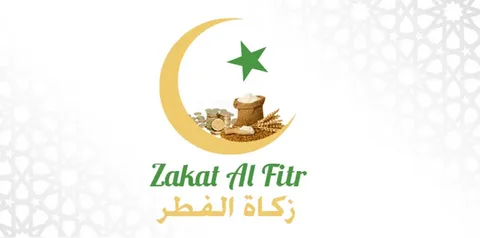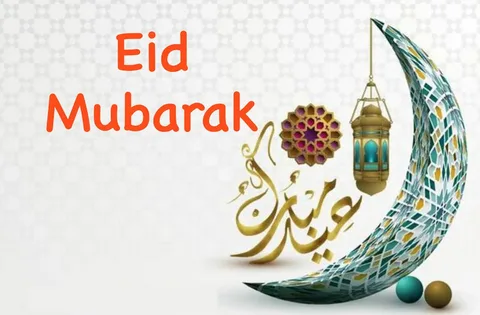Eid al-Fitr, also known as the Festival of Breaking the Fast, is a significant Islamic holiday celebrated by Muslims worldwide. It marks the end of Ramadan, the holy month of fasting, and is a time of joy, feasting, and gratitude. One of the essential aspects of Eid al-Fitr is the concept of giving zakat, a form of charitable giving mandated by Islam, in this article on Arabian Tongue we will explorer Eid al fitr zakat benefits.
Meaning and Importance of Zakat

Zakat, derived from the Arabic word “zakah,” means purification and growth. It is one of the Five Pillars of Islam and is obligatory for all Muslims who meet the necessary criteria of wealth. Zakat is seen as a means of purifying one’s wealth and blessing it, while also fulfilling the obligation of caring for those in need.
The Concept of Zakat during Eid al-Fitr
During Eid al-Fitr, Muslims are encouraged to give zakat as a way of expressing gratitude for the blessings they have received during Ramadan. It is a time when individuals reflect on their spiritual growth and consider the needs of others in their community.
Eid al fitr zakat benefits
- Social Benefits: Zakat plays a crucial role in fostering social cohesion and solidarity within the Muslim community. By giving zakat during Eid al-Fitr, individuals contribute to the well-being of society, helping to alleviate poverty and support those who are less fortunate.
- Spiritual Benefits: Giving zakat is not only a financial obligation but also a spiritual one. It purifies the soul of the giver and strengthens their connection to their faith. Through acts of charity, Muslims deepen their sense of compassion and empathy towards others.
- Economic Benefits: Zakat distribution stimulates economic growth by redistributing wealth to those in need. It helps to create a more equitable society by providing resources to marginalized communities and empowering individuals to improve their economic circumstances.
Impact of Zakat on Society
Zakat has a transformative impact on society by addressing issues of poverty, inequality, and social injustice. It promotes the values of generosity, compassion, and solidarity, fostering a sense of communal responsibility and mutual support.
How Zakat Helps the Needy
Zakat provides essential support to the most vulnerable members of society, including the poor, orphans, widows, and the elderly. It enables them to meet their basic needs, such as food, shelter, education, and healthcare, thereby improving their quality of life and restoring their dignity.
Encouraging Generosity during Eid al-Fitr
Eid al-Fitr serves as a reminder of the importance of generosity and compassion towards others. It is a time when individuals are encouraged to give generously to those in need, regardless of their financial status. By fostering a culture of giving, Eid al-Fitr reinforces the values of empathy and solidarity within the Muslim community.
Zakat as a Form of Worship
Giving zakat is not merely a charitable act but also an act of worship in Islam. It is a way for Muslims to express their devotion to Allah and fulfill their religious obligations. By obeying the commandment to give zakat, believers strengthen their faith and demonstrate their commitment to living a righteous and ethical life.
Zakat in the Modern Context
In today’s world, zakat takes on new significance as Muslims navigate complex economic and social challenges. From addressing poverty and unemployment to supporting refugees and disaster relief efforts, zakat plays a vital role in promoting social justice and humanitarian action on a global scale.
Fulfilling Religious Obligations through Zakat
Giving zakat during Eid al-Fitr is not only a tradition but also a religious obligation for Muslims. It is a way of demonstrating obedience to the teachings of Islam and fulfilling the duty of caring for those less fortunate. By giving zakat, believers uphold the principles of justice, equality, and compassion that lie at the heart of their faith.
Eid al-Fitr: A Time for Reflection and Gratitude

As Muslims celebrate Eid al-Fitr, they are reminded of the blessings of Ramadan and the importance of gratitude for Allah’s mercy and generosity. It is a time for reflection on one’s spiritual journey and a renewed commitment to living a life guided by faith, compassion, and righteousness.
Zakat: A Means of Purification
In addition to its social and economic benefits, zakat serves as a means of purifying one’s wealth and soul. By giving away a portion of their assets, individuals rid themselves of greed and selfishness, cultivating a spirit of generosity and humility. In this way, zakat becomes a source of spiritual growth and inner peace.
Learn Now: Learn Quran Online
FAQs
What is the significance of Eid al-Fitr in Islam?
Eid al-Fitr marks the end of Ramadan and is a time of celebration and gratitude for Muslims worldwide.
What is zakat, and why is it important during Eid al-Fitr?
Zakat is a form of charitable giving mandated by Islam, and it is essential during Eid al-Fitr as a way of expressing gratitude and supporting those in need.
Who is eligible to receive zakat?
Zakat is typically distributed to the poor, orphans, widows, and other vulnerable members of society who meet the criteria of eligibility.
How much zakat is a Muslim required to give?
The amount of zakat a Muslim is required to give is calculated based on their wealth and assets, typically at a rate of 2.5%.
Can zakat be given at other times besides Eid al-Fitr?
Yes, zakat can be given at any time of the year, but it holds particular significance during Eid al-Fitr as a form of celebration and gratitude.
Conclusion
Eid al-Fitr is not only a time of celebration and feasting but also a time for reflection, gratitude, and generosity. Through the practice of giving zakat, Muslims express their commitment to social justice, compassion, and solidarity. By supporting those in need, they strengthen their communities and uphold the principles of their faith.


